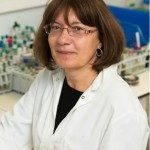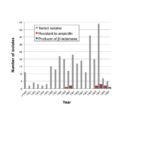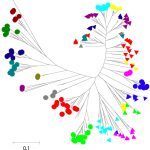Since 1964, the WHO-CC has been validating, naming and describing the new Salmonella types (about 10-20 every year). For this purpose, every year, 100-200 isolates are received for expertise from national reference centers all around the world. The analysis is free of charge and all isolates are kept forever in the WHO-CC collection (>6000 to date). This expertise is traditionally done by serotyping complemented, if necessary, by MLST and flagellar genes sequencing. Recently, all new types and variants are studied by whole-genome sequencing.
To carry out this expertise, the WHO-CC is helped by internationally recognized reference laboratories such as the US CDC, Atlanta, USA and IHU, Hamburg, Germany
Maintaining and sharing the international nomenclature of Salmonella is of utmost importance for laboratory-based surveillance systems of Salmonella infections. This is also important for some WHO activities (e.g., strengthening integrated surveillance of foodborne diseases). By sharing new serotypes and associated whole-genome sequences, we will help the surveillance systems with different capacity levels.
The current edition of the White-Kauffmann-Le Minor scheme (describing all validated serotypes) can be found at https://www.pasteur.fr/sites/default/files/veng_0.pdf (in English) or at https://www.pasteur.fr/sites/default/files/vf_0.pdf (in French).
A new edition of the scheme will be published in 2020.
The WHO is also involved in:
• the confirmation of antibiotic resistant phenotypes,
• the detection of particular antibiotic resistance genes (i.e., those encoding resistance to critical antibiotics such as carbapenems, extended-spectrum cephalosporins and fluoroquinolones),
• the comprehensive analysis of the resistome by whole-genome sequencing,
• hosting trainees bringing their own strains,
• the participation in WHO training courses.






